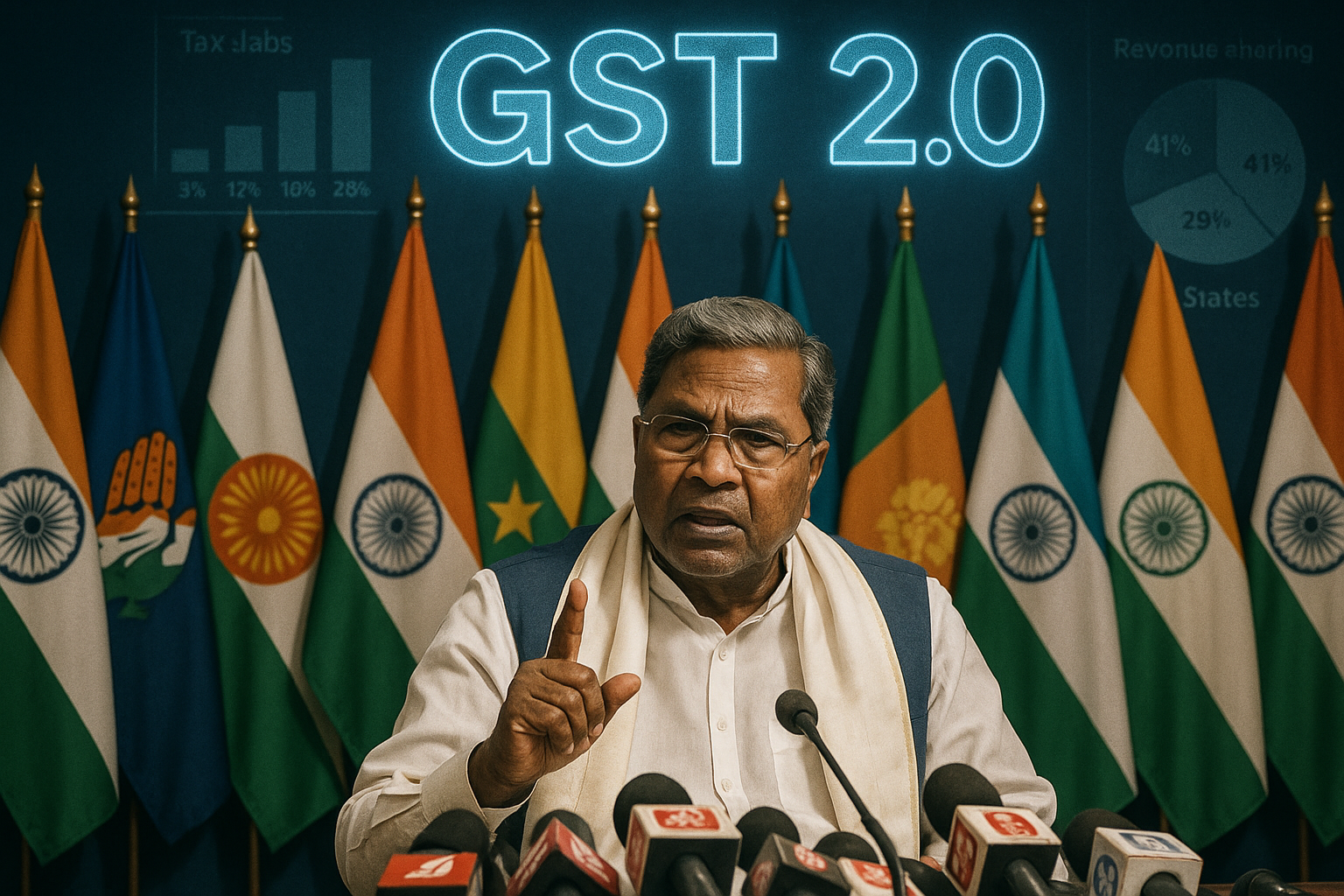Karnataka Chief Minister Siddaramaiah hailed the consensus reached among eight opposition-ruled states on GST reforms, calling it a step toward creating a more balanced and cooperative tax regime. The collective stance emphasizes the need for reforms that not only simplify compliance but also protect states’ fiscal autonomy and ensure consumer benefits from GST rationalization.
This rare alignment among opposition states underscores how GST 2.0 reforms are evolving into a matter of federal cooperation and economic stability.
Opposition States’ United Stand
The consensus reflects growing recognition that GST reforms must prioritize both efficiency and equity. Opposition states have argued for:
Greater clarity in revenue-sharing mechanisms between Centre and states.
Ensuring anti-profiteering measures so GST rate cuts reach consumers.
Simplification of multiple slabs to make GST more business- and citizen-friendly.
Siddaramaiah praised the agreement as a move that strengthens cooperative federalism, ensuring that reforms are shaped by all stakeholders.
Why GST Reform Needs Consensus
GST has been a cornerstone of India’s indirect tax system, but challenges such as compliance complexity, revenue disputes, and uneven state benefits have persisted. A coordinated approach between Centre and states is vital to build trust, transparency, and long-term stability in the system.
The opposition states’ stance also signals a willingness to engage constructively, ensuring reforms are not seen merely as central mandates but as collective governance outcomes.
Policy and Economic Impact
A unified approach to GST reforms could have wide-ranging benefits:
For Businesses: Simplified slabs and processes reduce compliance burden.
For Consumers: Assured transmission of tax cuts to prices improves affordability.
For States: Stronger role in shaping GST ensures fiscal balance and autonomy.
Siddaramaiah stressed that consensus-building will make GST a more effective tool for both economic growth and social equity.
Why This Matters
For Politics: Demonstrates rare opposition unity on economic governance.
For Federalism: Strengthens Centre-state cooperation in fiscal policymaking.
For Economy: Ensures GST reforms deliver inclusive, growth-oriented outcomes.
The development shows that GST 2.0 is not just about tax codes—it is about building a tax system rooted in cooperation, fairness, and inclusivity.












